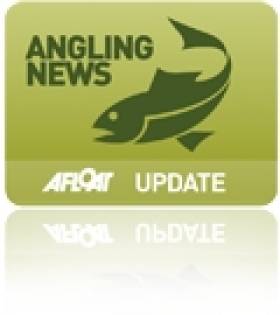Displaying items by tag: Wild Trout Trust
Second Irish Fly Fair Set To Be Bigger and Better
#ANGLING - The Irish Fly Fair and Angling Show at the Galway Bay Hotel next weekend be "the biggest of its kind in Ireland", hosting the largest number of fly tyers and trade stands from over 15 countries, according to organisers.
The two-day exhibition, now in its second year, will welcome some of the world's top fly tyers and angling celebrities to Salthill.
As with the first event last November, visitors will have the opportunity to learn from the world's best fly dressers and casters, with tuition provided by APGAI Ireland.
Returning angling celebs Hywel Morgan, Glenda Powell, Stevie Munn, Paddy McDonnell, Peter O’Reilly will be joined by newcomer Scott MacKenzie to advise on all aspects of fly fishing.
Among the new events this year is the youth fly tying competition, giving younger anglers a chance to show the pros what they can do.
Experts from Inland Fisheries Ireland, the Wild Trout Trust and many more will also be hosting talks and seminar on various angling-related topics.
And all that is aside from the huge trade aspect of the weekend.
"Building on the success of last year’s show, where business was brisk, the 2011 show has attracted trade from all over Europe who are keen to come to Galway and exhibit to the Irish market," said organiser Grace McDermott.
For more details on the second annual Irish Fly Fair and Angling Show visit www.irishflyfair.com.





























































